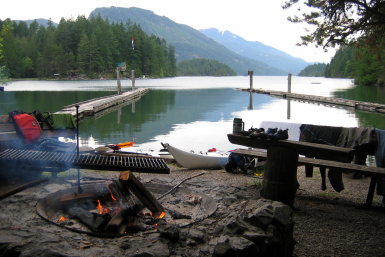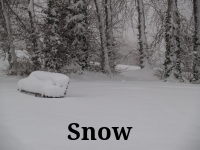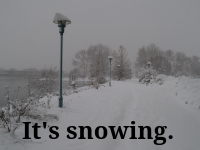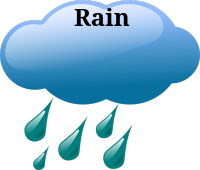Lição 10 - Falar sobre o passado
Conversações

English
Eric phones Tom to tell him about his vacation at a nearby lake.
Eric: Hi Tom. How's it going?
Tom: Good. How was your vacation?
Eric: Great! We went hiking in the forest, and kayaking around the lake. We were very lucky with the weather, it was sunny and warm every day.
Tom: How many people were there?
Eric: There were five of us.
Tom: Where did you stay?
Eric: We rented a cabin at the south end of the lake. It was right on the lake, with a small beach in front. It came with a kayak and wood for the fire pit on the beach. I had such a great time that I want to go again next summer. Maybe you can come with us next time.
Tom: That sounds great!
Português
Eric telefona a Tom para lhe falar das suas férias num lago próximo.
Eric: Olá Tom. Como vai isso?
Tom: Que bom. Como foram as tuas férias?
Eric: Ótimo! Fomos caminhadas na floresta e caiaques ao redor do lago. Tivemos muita sorte com o tempo, estava ensolarado e quente todos os dias.
Tom: Quantas pessoas estavam lá?
Eric: Havia cinco de nós.
Tom: Onde você ficou?
Eric: Alugamos uma cabine no extremo sul do lago. Era bem no lago, com uma pequena praia na frente. Ele veio com um caiaque e madeira para a fogueira na praia. Eu me diverti tão bem que quero ir novamente no próximo verão. Talvez você possa vir conosco na próxima vez.
Tom: Isso parece ótimo!
Vocabulário e Frases
 How many people were there?
How many people were there?
|
Quantas pessoas estavam lá? |
 at a nearby lake
at a nearby lake
|
em um lago nas proximidades |
 We went hiking in the forest, and kayaking around the lake.
We went hiking in the forest, and kayaking around the lake.
|
Nós fomos caminhadas na floresta, e caiaque em torno do lago. |
 beach
beach
|
praia |
 cabin
cabin
|
cabana |
 to phone
to phone
|
telefonar |
 to tell
to tell
|
contar |
 fire pit
fire pit
|
fogueira |
 kayak
kayak
|
caiaque |
 lucky
lucky
|
por sorte, afortunado |
 to rent
to rent
|
arrendar |
 to come with
to come with
|
vir com |
 south
south
|
sul |
 to stay
to stay
|
ficar |
 vacation
vacation
|
período de férias, férias |
 wood
wood
|
madeira |
Anúncio
Weather
 weather
weather
|
clima |
 cloud
cloud
|
nuvem |
 heat
heat
|
calor |
 rain
rain
|
chuva |
 snow
snow
|
neve |
 storm
storm
|
tempestade |
 sun
sun
|
sol |
 wind
wind
|
vento |
 How's the weather?
How's the weather?
|
Como está o tempo? |
 It's a beautiful day.
It's a beautiful day.
|
É um lindo dia. |
 It's cold.
It's cold.
|
Está frio. |
 It's cool outside.
It's cool outside.
|
Está fresca lá fora. |
 It's foggy.
It's foggy.
|
Está nublado. |
 It's hot.
It's hot.
|
Está quente. |
 It's humid.
It's humid.
|
Está úmido. |
 It's raining.
It's raining.
|
Está chovendo. |
 It's snowing.
It's snowing.
|
Está nevando. |
 It's stormy.
It's stormy.
|
Está tempestuoso. |
 It's sunny.
It's sunny.
|
Está ensolarado. |
 It's windy.
It's windy.
|
Está ventando. |
 It's very windy today.
It's very windy today.
|
Está muito ventoso hoje. |
 The weather's bad.
The weather's bad.
|
O tempo está ruim. |
 The weather's nice.
The weather's nice.
|
O tempo está bom. |
 It's supposed to be nice tomorrow.
It's supposed to be nice tomorrow.
|
É suposto ser bom amanhã. |





Flashcards
Aqui estão alguns flashcards para ajudá-lo a aprender como falar sobre o clima em inglês.
Gramática
Past Tense of Verbs
'The past tense (pretérito) dos verbos, também chamado de 'simple past tense', descreve uma acção, evento, ou estado emocional que aconteceu no passado. A maioria dos verbos formam 'the past tense' adicionando o sufixo ed no final de um verbo. Por exemplo, 'the past tense' de walk é walked.
Exemplos
| I walked to the park yesterday. | Eu andei para o parque ontem. |
| She talked about her vacation. | Ela falou sobre suas férias. |
| He closed the door. | Ele fechou a porta. |
| They talked about the cabin. | Eles falaram sobre a cabine. |
| We hoped for the best. | Nós esperava para o melhor. |
| The clouds drifted away. | As nuvens se afastaram. |
Irregular Verbs in the Past Tense
Muitos verbos muito comuns em inglês têm um 'past tense' irregular. Esta lição irá cobrir alguns destes verbos irregulares muito comuns. A próxima lição cobrirá também alguns verbos mais irregulares.
To Be
O verbo be é o mais irregular em inglês. Tem duas formas do 'past tense'. A tabela a seguir mostra o 'past tense' para o verbo be.
| I was | Eu fui |
| he was | ele era |
| she was | ela era |
| it was | era |
| we were | nós éramos |
| you were | você era |
| they were | eles eram |
Exemplos
| I was at the store. | Eu estava na loja. |
| He was tired. | Ele estava cansado. |
| They were happy. | Eles eram felizes. |
| We were at home. | Nós estávamos em casa. |
| Were they at the beach? | eles estavam na praia? |
| They were not at the beach. | Eles não estavam na praia. |
| The car was dirty. | O carro estava sujo. |
| The windows were dirty. | As janelas estavam sujos. |
Outros verbos irregulares
A tabela a seguir mostra alguns verbos muito comuns que são irregulares no 'past tense'. A lição 10 cobrirá verbos ainda mais irregulares.
| Verb | Past Tense | |
|---|---|---|
| do | did | fazer |
| have | had | ter |
| go | went | ir |
| sleep | slept | dormir |
| come | came | vir |
| give | gave | dar |
| find | found | encontrar |
| think | thought | pensar |
Exemplos
| They went to the store last week. | Eles foram para a loja na semana passada. |
| He thought about it. | Ele pensou sobre isso. |
| I slept all night. | Eu dormi a noite toda. |
| We did the work. | Nós fizemos o trabalho. |
| They found it. | Eles encontraram. |
| She found the book. | Ela encontrou o livro. |
| I did the dishes. | I did the dishes. |
| They slept on the floor. | Eles dormiam no chão. |
Questions and Negative Statements with the Past Tense
Para ambas as perguntas e declarações negativas, o 'past tense' do verbo auxiliar do é usado junto com o verbo, semelhante a como do é usado como um verbo auxiliar ao fazer perguntas ou fazer declarações negativas no 'present tense'.
Nota: Did not é muitas vezes encurtado para didn't.
Exemplos
| Did they go to the store? | Fui eles para a loja? |
| They did not go to the store. | Eles foram não para a loja. |
| They didn't go to the store. | Eles foram não para a loja. |
| Did you sleep all night? | Você dormiu a noite toda? |
| I did not sleep all night. | Não dormi a noite toda. |
| Did she find the book? | descobriu que o livro? |
| She did not find the book. | Ela não encontrou o livro. |
| Did you buy it? | Você comprou isso? |
| We did not buy it. | Nós não comprá-lo. |
| They did not do it. | Eles não fazê-lo. |
Um número muito pequeno de verbos, como be, não use um verbo auxiliar ao fazer uma pergunta ou fazendo uma declaração negativa. Os exemplos a seguir mostram como fazer perguntas e fazer declarações negativas com o verbo be.
| Were you tired? | Você estava cansado? |
| I was not tired. | Eu não estava cansado. |
| I wasn't tired. | Eu não estava cansado. |
| Was the house for sale? | A casa estava à venda? |
| The house was not for sale. | A casa não se encontrava à venda. |
| The house wasn't for sale. | A casa não se encontrava à venda. |
| Were the dishes clean? | São os pratos limpos? |
| The dishes were not clean. | Os pratos estavam limpos? |
| The dishes weren't clean. | Os pratos estavam limpos? |
Anúncio
Ler Inglês
Chapter 1 - The Airport
Ana and Alejandro Martinez walk off the plane and into the airport. Both are tired from the flight, but also excited to be in a new country. They follow the crowd of people until they get to the lineup for customs. After about ten minutes, it is their turn to talk with the customs agent.
"Hello," Ana says as she gives the customs officer her passport.
"What is the purpose of your visit?" asks the customs officer.
"We are taking a course to help us improve our English."
"How long will you be staying in Vancouver?"
"We plan to stay until September fifth."
"Where are you staying?"
"We have friends who live here," Alejandro answered. "We met them when they visited our country. They invited us to stay with them for the summer, and recommended a course for us to take."
"What is your relationship?"
"Ana is my sister," Alejandro replied.
The customs officer gave them back their passports and said, "Enjoy your stay."
"Thank you", Ana and Alejandro said at the same time, then went to find their luggage.
They stood by the luggage carousel and waited for their luggage. "Is that your suitcase?" Ana said pointing at a black suitcase.
Alejandro looked at it. "I don't think so, but here is yours."
Ana grabbed her suitcase as it came by. A couple minutes later Alejandro got his suitcase as well.
"Now where do we go?", Ana asked.
"I think we need to go this way," Alejandro replied, pointing to the left.
They walked through a small passage and into a large waiting area.
"Alejandro! Ana!" they heard someone call.
Ana and Alejandro looked and saw their friends Sarah and Eric. They waved and walked over to them.
"Hi!" Sarah said. "How was the flight?"
"Long," said Alejandro. "But there were no problems."
"Let's go," Eric said, "We'll take you back to our house, and make dinner while you get settled in."
The four of them walked out of the airport, and into the sunny evening.
Vocabulário
| plane | avião |
| airport | aeroporto |
| tired | cansado |
| flight | vôo |
| excited | animado |
| country | país |
| crowd | multidão |
| lineup | fila |
| customs | alfândega |
| minute | minuto |
| purpose | propósito |
| visit | visita |
| improve | melhorar |
| until | até |
| answers | responde |
| summer | verão |
| recommended | recomendaram |
| relationship | relação |
| Enjoy your stay. | Aproveite sua estadia. |
| luggage | bagagem |
| suitcase | mala |
| grabbed | agarrou |
| pointing | apontando |
| passage | passagem |
| get settled in | Se instalar em |
Practicar
Mude cada frase para que ela use o tempo passado.
Exemplo - Questão: I do the work. Responda: I did the work.
| I want to go to the store. | |
| The boy is sad. | |
| She doesn't want a coffee. | |
| Do you have a pen? | |
| They walk to the park. |
Escreva sobre suas férias favoritas, ou umas férias que você gostaria de ir.
Exame
Faça o exame on-line para ver como você entende o 'past tense' em inglês.

